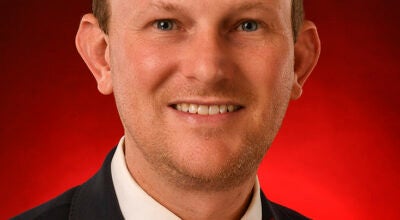The Pope gets involved
Published 10:51 pm Tuesday, June 23, 2015
What business does the pope have getting involved in politics and science? That’s a question that has come up in recent days surrounding the release of Pope Francis’s much anticipated encyclical, or letter, on ecology. “Laudato Si” (“Praise Be With You” — the beginning of a canticle addressed to Jesus Christ by St. Francis of Assisi) presents a full and comprehensive vision of creation and our responsibilities toward it.
“The Church has the duty of scrutinizing the signs of the times and of interpreting them in the light of the Gospel,” is what a document from the Second Vatican Council said about just this kind of thing. “In ‘Laudato Si,’ Pope Francis is applying the teachings of the Church to one of the most important and also meaningful controversies of our time,” says Matthew Bunson, senior correspondent for Our Sunday Visitor and editor of The Catholic Almanac. “In doing so,” Bunson says, “he builds his encyclical on the legacy of Catholic social teaching. Like his predecessors in their social encyclicals, Francis is not concerned with settling some scientific dispute, nor does he claim competence to do so. Rather, he reminds the world that the Church has the task of guiding discussions toward the deeper realities of issues and crises and to offer prudent and timely advice.”
The encyclical, in fact, says: “(T)he Church does not presume to settle scientific questions or to replace politics.”
Bunson observes: “To deny the right of the Church to speak on such matters is to suggest that Pope Leo XIII should not have waded into the question of labor, that Paul VI should not have interfered with the scientists who had perfected contraception and that the Church should remain silent on cloning and embryonic research.” In each of these cases, papal encyclicals have served to further conversation, prompted controversy and informed consciences.
At the end of the Second Vatican Council nearly a half-century ago, Pope Paul VI pled in a letter to the women of the world: “Reconcile men with life and above all, we beseech you, watch carefully over the future of our race. Hold back the hand of man who, in a moment of folly, might attempt to destroy human civilization.” (Pope Benedict reissued this same plea in the fall of 2012.) Pleading with humanity to examine what it is or may just be on the verge of doing to itself is not a new position for a pontiff. Nor is being criticized, rebuffed and dismissed for doing so.
Chad Pecknold, associate professor of theology at the Catholic University of America, tells me that a friend recently asked him the same question about what the Church has to do with politics and science et al. His reply? In the Catholic tradition, “all policy recommendations should be carefully considered, and in an encyclical such as this, such recommendations should inform Catholic conscience.”
But, he explains, “as the Holy Father says, no particular policy recommendation ‘binds the conscience’ of a Catholic engaged in concrete recommendations particular to his or her own context. This falls under positive precepts of the natural law, in which case there can be legitimate disagreement about solutions and policies. This does not mean that when teaching touches policy considerations it can thus be dismissed by any Catholic outright. It still must inform the conscience.”
Uninformed consciences, it could quite easily be said, have been at the root of many problems of our day. There are, surely, debates to be had about some of the issues raised and recommendations made in “Laudato Si.” Samuel Gregg, director of research at the Acton Institute, while concerned about the pope weighing in too deeply on some technical issues, said, “It is perfectly legitimate for Pope Francis to address the moral dimension of man’s relationship with the environment. Our free choices and actions vis-a-vis the natural world unquestionably touch on issues of doing good and avoiding evil.”
To be free, we need to know what the choices are in the first place. That’s where conscience comes in. That’s where the likes of “Laudato Si” come in.
As a philosopher-type puts it to me: Pope Francis in his new encyclical “underscores vividly that the human person is not an aberration or threat to the environment but the center of visible creation.” From that center, good can come, should we choose to be good stewards, directing our attention to gratitude. That might just get us to the bigger picture — about life, death, the family and the common good in “Laudato Si” — that many headlines and analysis have missed.
Kathryn Jean Lopez is senior fellow at the National Review Institute, editor-at-large of National Review Online and founding director of Catholic Voices USA. She can be contacted at klopez@nationalreview.com.


